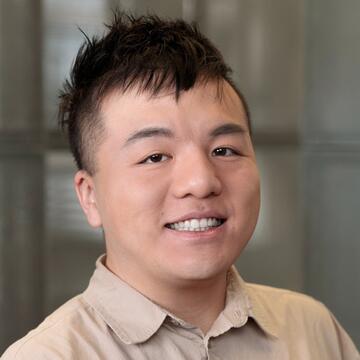PJ Dick Innovation Fund Project Grant: Village in the City, City in the Village
Village in the City, City in the Village: The Twelve Villages of San Pu Loei
Tommy CheeMou Yang, Visiting Special Faculty, Carnegie Mellon Architecture
In collaboration with: Brian McGrath, Professor of Architecture and Urban Design, Parsons at the New School; Chiranthanin (Phuwa) Kitika, Associate Professor of Architecture, Chiang Mai University; Jeng Pheera Paenkhumyat, Architect and Adjunct Professor of Architecture, Chiang Mai University; Vernelle A. A. Noel, Lucian and Rita Caste Assistant Professor in Architecture, Carnegie Mellon Architecture
Chiang Mai, the capital city of the historically remote mountain valley Kingdom of Lanna in Northern Thailand, is experiencing unprecedented urban development. Lanna means “one million rice fields” and due to its cultural and natural riches, the city was formerly a culturally diverse regional trading center but is now easily reached by an international airport. This ease of access has especially threatened the village-based rice fields that give the historical Kingdom its name. This project proposal is part of a network of relationship building that has been supported by the Frank-Ratchye Studio for Creative Inquiry, Urban Systems Lab and Tishman Environmental Center. The project proposal explores how years of trust building, fieldwork and spatial ethnographies nurture a shift in architectural and urban design towards an action-based socio-ecological pedagogy rooted in the collective lived wisdom of communities our disciplinary knowledge has carefully erased.
In collaboration with Chiang Mai University, the proposal expands a relationship between designers, students and local villagers to focus on the current urbanization of a municipality of agricultural villages in San Pu Loei. This research has three main objectives: 1) to foster a community empowered design research praxis through design, 2) develop a design build project in San Pu Loei working with craftsfolks from Thailand, and 3) investigate how craft practices of Chiang Mai’s urban villagers inform socio-ecological justice tactics in the development of a new theoretical framework through a current book proposal, Compoundologies. These stories are proposals for a future Chiang Mai Valley rooted in kinship and commons making.
Image: Chiang Mai University and Carnegie Mellon Architecture students with Grandmother Boon Reaung. Credit: Tommy CheeMou Yang
About the Project Lead
Visiting Special Faculty
-
Project grants support projects that address the school’s three pedagogical challenges: climate change, social justice and artificial intelligence. The grants support the diverse work of Carnegie Mellon Architecture’s faculty in creative practice, professional practice, artistic practice, funded research, participatory design, design build, curation, scholarship, critical and digital humanities, and more. The intention of the PJ Dick Project Grants Program is to provide support for a variety of projects including faculty seed funds to start a project with the aim of getting external support, to continue work on a project that may not have the option for sponsored research, and to support organizing symposia and conferences at the school.
-
The Faculty Grants Program will award a total of $400,000 over four years and is open to all full time faculty at the school. The 2024 proposals were evaluated by a committee comprised of school head Omar Khan; associate heads Joshua Bard, Mary-Lou Arscott and Kai Gutschow; Erica Cochran Hameen, Director of Diversity, Equity and Inclusion; Theodossis Issaias, Special Faculty; Jenn Joy Wilson, Assistant Dean for Research Development and Sponsored Projects; and Aaron Martin, Associate Director, Institutional Partnerships, College of Fine Arts.
The Faculty Grants Program, established in 2023 by PJ Dick Trumbull Lindy Group, supports faculty research and teaching innovations that address the school’s three pedagogical challenges: climate change, social justice and artificial intelligence. The proposals were assessed on their impact in furthering a faculty member’s research and teaching, their contribution to interrogating the school’s challenges, and their viability to garner further research support, make an impact on the discipline and expand the pedagogy of the school.
